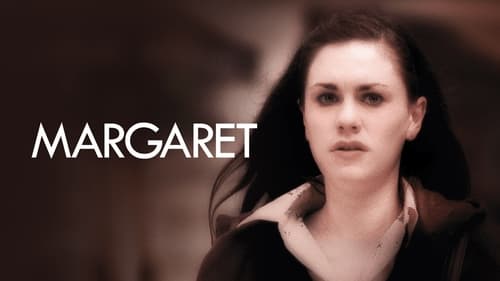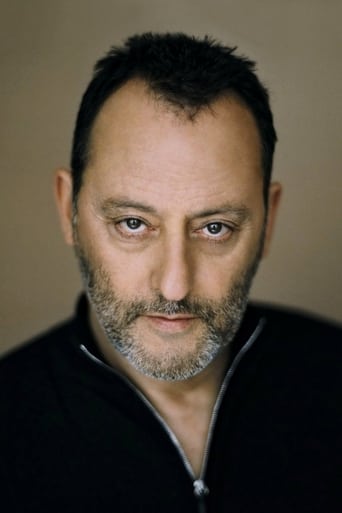Michael Ledo
There is no one named Margaret in the movie. It comes from a poem that is read. But that's okay I grew up watching Captain Kangaroo who is nether a captain nor a kangaroo. In fact there may have been a lot of stuff I didn't grasp in this film, but here goes.The film opens in slow motion to illustrate how life moves slowly along until one moment suddenly changes and defines it. Lisa (Anna Paquin) distracts a bus driver who runs a red light and kills a women. She wants to do the right thing, but what is it? The grief and moral dilemma disrupts her life and her relationships.The film is well made. The acting was excellent as was the writing...I think. I just didn't enjoy the film, but I didn't dislike it either. The main problem I have with the overall theme is that Lisa wants justice for the dead woman. She has grief which we see, but we don't see her publicly confess her role in the death. She doesn't seem to have any guilt...or perhaps that is the point of the film is that we quickly forgive our own guilt...except we don't. I kept waiting for Lisa to take blame for what had happened.This is a film about grief, but it is not really sad. Matt Damon plays a geometry teacher who is a love interest of Lisa. Matthew Broderick plays a literature teacher whose classes provide the film with multiple confusing deeper themes for you to pick from in case you don't like the aspect of simply dealing with grief. After watching the film, I felt like I needed a hug.PARENTAL GUIDE: F-bomb, sex, nudity (J. Smith-Cameron, Ann Paquin silhouette)
tieman64
This is a review of "You Can Count On Me" and "Margaret", two excellent films written and directed by playwright Kenneth Lonergan.Released in 2000, "You Can Count On Me" stars Laura Linney and Mark Ruffalo as Sammy and Terry, two siblings whose lives have been affected by a family tragedy. Sammy lives alone with her son Rudy (Rory Culkin), whilst Terry's a drifter who lives on the road. When Terry moves in with the duo, he begins to form a bond with Sammy's kid. Sounds formulaic? It's not. Lonergan dodges clichés like crazy, conveys a certain emotional complexity, and delights in subtly setting up and then overturning expectations. In this regard, Terry is initially portrayed as a delinquent with no gifts, responsibilities or direction. Sammy, meanwhile, is portrayed as a strong, steadfast, stable Mom who has life by the reigns. Cleverly, however, Lonergan questions these narrow assumptions. Terry begins to reveal himself as a perceptive guy, becomes a surrogate father to young Rudy and reveals various talents. Sammy, meanwhile, unravels before our eyes. Both Ruffalo and Linney turn in excellent work. Ruffalo consciously mimics a young Brando, but is more wounded, more inwardly tortured. Like most of Ruffalo's characters, his Terry is a quiet, sexily melancholic guy. Linney, meanwhile, paints Sammy as a bristly, tightly wound woman. Both characters engage in rituals of denial, burying their pain, engaging in flights of fancy and never discussing "things" directly.More ambitious than "You Can Count On Me" is Lonergan's "Margaret", a deliberately lurid melodrama. The film stars Anna Paquin as Lisa, a precocious teenager who lives a life of privilege in New York City. When Lisa distracts a bus driver (Mark Ruffalo), this leads to a traffic accident and the death of a young woman. From here on, Lisa attempts to get the bus driver incarcerated, pursuing an idea of justice that's designed to expiate her guilt, though unconsciously she desires to draw attention to her own crimes. The film abounds with complex little moments. Lisa appears like a rude idiot in some of her school classes, but like a passionate, intelligent girl in others. She appears sexually mature and confident in some sequences, but hopelessly inexperienced in others. A mercurial force, Lisa purses everything with a sense of vengeance, though her roiling, emerging sense of self is also frequently humbled, as she spends much of the film dealing with her own insecurities, limitations and nagging conscience. Lonergan thus manages a strange juggling act; Lisa the hurricane, Lisa the mouse. He then applies these wild polar shifts to other characters. One kid, for example, played by Kieran Culkin, seems cool as a cucumber, until we learn he's sexually incompetent. School teachers (Matt Damon) and various other adult characters are given similar treatments.Elsewhere the film centres on Lisa's beleaguered single mother, a successful stage actress. Lisa attacks her mother for attending "boring Opera productions", in which "stupid people just want to prove how loud they can sing", without realising that she herself embraces an operatic vision of life. For Lisa, Lisa is the centre of the universe, Lisa's dilemmas matter, Lisa's trapped in a grandiose web. Lonergan thus has Lisa's daily troubles and emotional catharses – indeed, the whole aesthetic of his film - echo the operatic form. He then mirrors Lisa's operatic self-centredness with the quieter, more mature world-views of older characters. Reserved, bottled-up and more generous than Lisa, these are characters who have learnt what every teenager eventually learns: you are not the centre of the universe. Other people matter. But Lonergan also sympathises with Lisa. Her private operas also matter. From these contradictions then spring various exchanges about anti-Semitism and so forth. In "Margaret", everyone has their own opera, they just approach the sound-stage with different levels of jadedness.Incidentally, the film's title refers to the person addressed in Gerard Manley Hopkins' poem, "Spring and Fall". That poem was about a girl called Margaret who is shocked to realise that all the beautiful trees around her are experiencing a form of death and decay. As Margaret's innocence crumbles, the poem then mocks her for mourning leaves whilst being ignorant to the plights of human beings. It then argues that as she grows older, Margaret's understanding will grow, until she'll be able to see the death of leaves and things in "other worlds" as well.The poem thus concisely embodies Lonergan themes: how rational minds are prone to irrationality, how emotional storms are both warranted and supremely narcissistic, how moral behaviour is oft made difficult, how private traumas and complications routinely go unnoticed by others, how everyone engages in fantasy projection, how indifference functions as both a kind of maturity and cold-heartedness, how being good and wishing to be seen "being good" differ, how morality is necessary but seems limited and trite in the face of greater injustices, how suffering seems relative, the difference between intellectually knowing and physically experiencing, the imperfections of people and the world itself etc etc.Aesthetically, "You Can Count On Me" is the more conventional of the two films. "Margaret", meanwhile, is shot with a certain Olympian grandeur, everything big and bombastic, Lonegan's stance magisterial and overcooked by design. The film had a troubled post-production history, spending five years in editing rooms, civil courts and without release. When it finally hit cinema screens, nearly half a decade after it was shot, it was hailed as a masterpiece by several directors, most notably Martin Scorsese. Several cuts of the film exist. Lonergan's preferred cut is roughly three hours long.8.9/10 – See "Everything Must Go", "Ghost World", "The Yellow Hankerchief" and "Frozen River". Worth two viewings.







